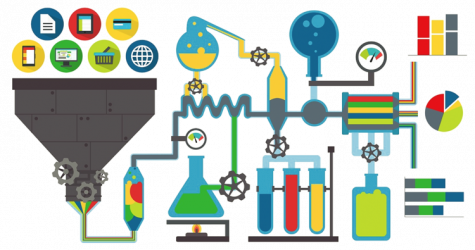Presentation
The Autonomy Through Cyberjustice Technologies (ACT) project is a research partnership that is unique in the field of artificial intelligence and cyberjustice. AJC is led by Professor Karim Benyekhlef, Director of the Cyberjustice Laboratory, and funded by a Partnership Grant issued by the Social Sciences and Humanities Research Council (SSHRC) in the context of the 2017 competition.
Description : Autonomy through Cyberjustice Technologies (ACT)
The ACT partnership aims to leverage artificial intelligence (AI) to the service of justice stakeholders to improve conflict prevention and resolution. This project brings together a multidisciplinary and international team of 52 researchers and 45 partners representing a number of stakeholders including the world’s leading research centres dedicated to the implementation and use of technologies in the field of justice (cyberjustice), litigants and legal professionals (justice stakeholders), as well as main users and developers of AI for justice in Canada.
ACT’s research activities will benefit from both the software infrastructure of the Cyberjustice Laboratory (CJLab) and its partners’ expertise in AI and data harvesting, as well as the considerable experience acquired through the Towards Cyberjustice project (MCRI 2011-2018).

Research hypothesis
Our researchers and partners have noted, in the last two years, a stark proliferation of legaltechs offering justice stakeholders technological tools leveraging AI and big data to for conflict resolution and prevention. Notable examples include conversational agents, predictive algorithms for anticipating the outcome of lawsuits, smart contracts and online dispute resolution. These innovations are designed to enhance the stakeholders’ autonomy; in other words, to increase their ability to understand the law and enforce it. This empowerment of stakeholders through cyberjustice promises to transform conflict prevention and resolution as we know it today, while also disrupting the organization of the legal professions.
Interested and challenged by this phenomenon, justice practitioners question the contours of AI and its various effects on the delicate equilibrium prevailing in the judicial community. Our partners seek to identify the impacts of the deployment of AI and to draw lessons to develop technologies that are better suited to justice. To this end, three working groups have been formed.

Research agenda
Operating in a complementarity approach, these three groups will coordinate the activities of 16 distinct research subprojects. Based on the ongoing participation of its partners, the ACT Project will proceed over a six years period in four stages: a) an inventory of implementation cases of AI used to serve justice; b) evaluation of their impact with respect to the enhancement of the autonomy of justice stakeholders; c) development of best practices for the safeguard of parties’ interests; and d) development of a governance framework capable of guaranteing the fair use of AI for justice.
With a pragmatic approach, the ACT Project will participate in developing a legal governance framework for AI in the field of justice. This major project will also foster the education of the next generation of multidisciplinary researchers in law and computer science by contributing to the annual training of approximately 25 students.
In terms of secondary benefits, the research sub-projects will experiment with and implement innovative technologies for justice and will also provide new opportunities for the private sector.
Data science powered by IVADO
This content has been updated on 18 July 2022 at 11 h 21 min.



